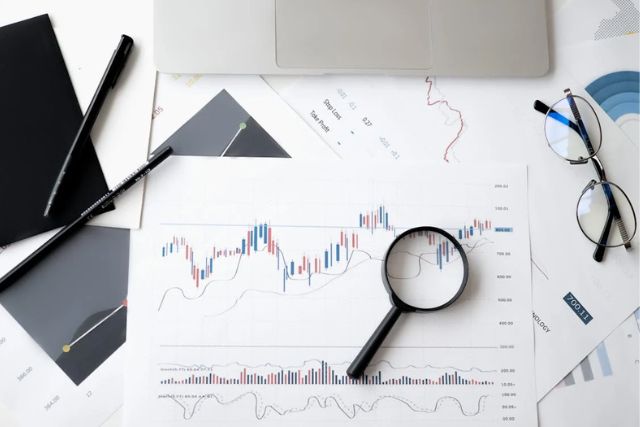Foreign exchange, known as ‘Forex’ or ‘FX’, is the exchange of one currency for another at an approved exchange price on the over-the-counter (OTC) market. Forex trading is the most traded market in the world, with an average turnover of more than US trillion per day, which is around US billion. It is easy to see how the foreign exchange market is the largest financial market in the world.
Forex Trading:

Forex trading is simultaneously buying one currency while selling another, especially for speculative purposes. Values rise (appreciate) and fall (depreciate) against each other currency due to several factors, including economics and geopolitics. The general goal of a forex trader is to profit from changes in the value of one currency relative to another by actively speculating where prices are likely to change in the future.
Unlike most financial markets, the forex market has no physical location or central OTC (over-the-counter) exchange. It trades 24 hours daily through a global network of businesses, banks, and individuals. This means that currency prices are always fluctuating in value against each other. Offering several trading opportunities.
24-Hour Forex Trading:

One of the key elements behind the popularity of forex is that the forex market is open 24 hours a day, from Sunday evening to Friday evening. Trading follows the clock, opening Monday morning in Wellington, New Zealand, evolving into Asian trading spearheaded by Tokyo and Singapore, before moving to London and closing on Friday evening in New York.
The fact that prices are available for trading 24 hours a day helps to ensure that price gapping (when prices jump from one level to the next without trading in between) is less and ensures that traders can take positions whenever they want, regardless of the time of day, even though there are certain times ‘sleep’ when volumes are below.
Influence:
Foreign exchange is a leveraged (or margin) product, meaning that you are only required to deposit a small percentage of the full value of your position to place a forex trade. This means that the initial capital outlay’s potential profit, or loss, is significantly higher than in traditional trading.
Price:
All forex is repeated in terms of one currency against another. Every currency pair has a ‘base’ currency and a ‘contra’ currency. The base currency is the money on the left of the currency pair, and the counter currency is the money on the right.
What Is Forex:
For example, in EUR/USD, EUR is the ‘base’ currency, and USD is the ‘contra’ currency. Forex price movements are triggered by a currency either appreciating (strengthening) or depreciating (weakening). If the price of EUR/USD, for example, were to fall, this would indicate that the counter currency (US dollar) is strengthening while the base currency (Euro) is depreciating.
When trading forex prices, you will buy a currency pair if you believe the base currency will strengthen against the counter currency. Alternatively, you would sell a currency pair if you believe the base currency will weaken in value against the counter currency.
Some Examples Of Major Currency Pairs Are:
EURO/USD (The value of 1 EURO expressed in United States dollars)
USD/CHF (The value of 1 USD is expressed in Swiss francs)
Pips (Percentage Points)
Pip stands for Percentage Points. Most of our currency pairs quote prices to 5 decimal places, with changes starting from the 4th decimal place (0.0001), commonly referred to as ‘pips’. For instance, if the EUR/USD forex price shifts from 1.33800 to 1.33920, it indicates an increase of 12 ‘pips’ (92-80 = 12).
Spread:

This currency pair’s BID/ASK difference is called the ‘spread’. An example would be EUR/USD dealing at 1.33800/1.33808 (in this case, the spread is 0.8 pips or 0.00008). JPY pairs are the exception, as they are quoted to only two decimal places.
A Dollar cash/JPY price of 97.42/97.44 displays a three-pip ‘spread’.
Does It Affect Forex Prices?
Many different factors influence forex prices. This is what makes forex trading so interesting. High market liquidity means prices can change quickly in response to news and short-term events.
Some Of The Key Factors That Affect Forex Prices Are:
1. Political and economic stability
2. Monetary policy
3. Currency intervention
4. Natural disasters (earthquakes, tsunamis, etc.)